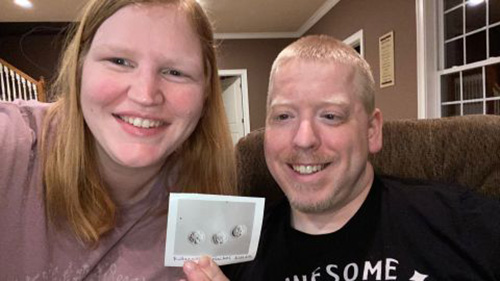World's oldest babies? Couple welcomes twins born from 30-year-old frozen embryos
Twins Lydia and Timothy were finally born on Oct. 31, 2022 to parents Rachel and Philip Ridgeway after being frozen as embryos for 30 years.
According to the National Embryo Donation Center, the twins were born from the longest-frozen embryos to ever result in a live birth.
They beat out previous record holder Molly Gibson, born in 2020, who was from an embryo frozen for nearly 27 years. Her sister Emma was also born from a 24-year-old frozen embryo.
"There is something mind-boggling about it," Philip told CNN. "I was five years old when God gave life to Lydia and Timothy, and he's been preserving that life ever since."
"In a sense, they're our oldest children, even though they're our smallest children," he added. The Oregon-based couple has four other children.
"We've never had in our minds a set number of children we'd like to have," the father of the twins said. "We've always thought we'll have as many as God wants to give us, and when we heard about embryo adoption, we though that's something we would like to do."

Philip continued to say they chose the embryos that "had been waiting the longest."
Lydia was born five pounds and 11 ounces while Timothy was six pounds and seven ounces.
Freezing embryos
The embryos were frozen on April 22, 1992 for an anonymous married couple. The sperm was from the husband who was in his early 50s and a 34-year-old egg donor.
For nearly three decades, they were kept in tiny straws in liquid nitrogen at a fertility lab on the west coast. In 2007, the couple donated the embryos to the National Embryo Donation Center in Knoxville, Tennessee, in hopes that another couple might be able to use them.
The Ridgeways went through an embryo donation, a process where unused embryos from in vitro fertilization (IVF) are donated to another person or couple. According to fertility resource Progyny, IVF typically creates an excess of fertilized eggs and a couple/individual can choose to cryopreserve them for the future.


